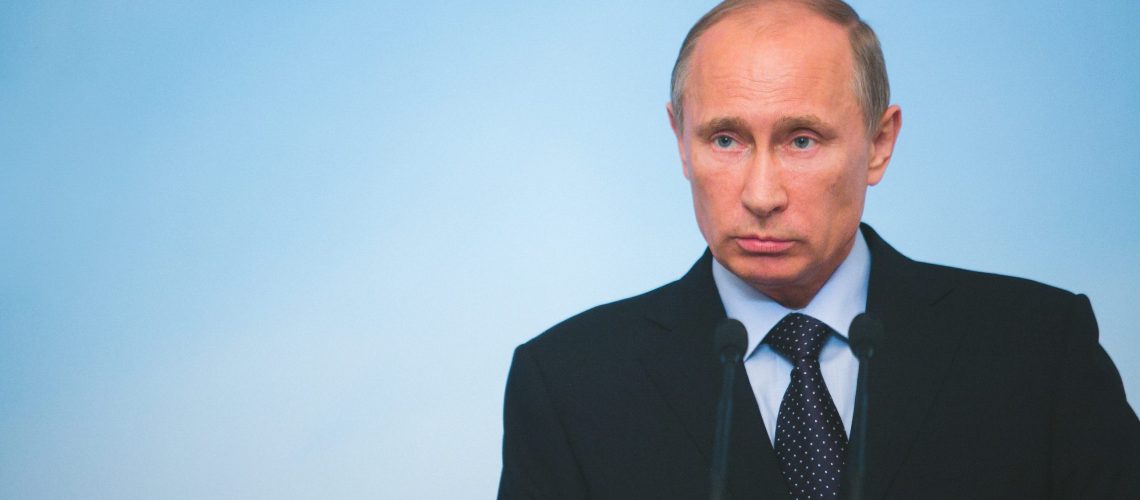Former KGB Intelligence Officer, Vladimir Putin, wasn’t content with being a mere KGB agent – although he had risen to the rank of Lieutenant Colonel. In 1991, he resigned to begin a political career and, in 1999, was appointed as Prime Minister of Russia under then President Boris Yeltsin.
After Yeltsin’s resignation in 1999, Putin became acting president, and four months later was elected president. He was re-elected in 2004 and then, because he was constitutionally allowed only two terms, became prime minister again from 2008 to 2012, when he was re-elected president in an election that was characterised by allegations of fraud. In 2018, he was again re-elected and, in April 2021 (yes, just last year), he held a referendum and then signed into law amendments to the Russian constitution that allowed him to potentially extend his presidency until 2036. He would then be 84.
Forgive the quick history lesson. I felt it would provide some context for our lessons on leadership from a man who currently heads up an authoritarian government which jails and represses its political opponents and intimidates and suppresses the free press in his country.
Russia’s current military invasion of Ukraine reveals a very important truth – Putin is a political leader with a military mindset. Now, while that may seem like I’m merely stating the obvious, it’s important for business leaders to understand the significance of military leadership and the fact that it has no place in the business or political world.
Why? Because military leadership is basically a dictatorship. The leader issues the commands and those below obey the orders they’re given. If they don’t, there are very severe consequences.
Another thing about the command and control approach to leadership is that those receiving the orders are never allowed to offer their opinion or disagree with the leader. What the commander-in-chief says goes. You can well imagine what that does for collaboration and innovation in the business world …
Judging from the reaction of the international community to Putin’s military action in Ukraine, he has made some big errors of judgement which none of his subordinates are going to point out to him.
So here’s an important lesson: if you’re still operating with a military model of leadership in your company (and many companies are), you need to change. You’ve probably read numerous articles talking about leaders having to upskill and reskill. Well, this is one of the ways you have to do so – you have to demilitarise your leadership.
So, the first lesson Putin teaches business leaders is that military leadership no longer has a place in the business world. This model of leadership was the model of choice in the aftermath of the Second World War, as academics based their leadership theories on those leaders deemed to have been successful during the war.
While military leadership has its place in military establishments and in wartime, should a country be attacked, it simply no longer has a place in the business world.
The second lesson we learn flows from the first. In trying to achieve his objectives (something that business leaders are also required to do), Putin’s decisions and actions have led to the deaths and injury of a rising number of innocent people, not to mention the destruction of property and infrastructure. At the time of writing this, the numbers of dead and wounded had already moved into the thousands.
Think about it … Military leaders send their troops into battle knowing that many of them will be killed. That’s another reason why military leadership has no place in the business world – executives who think like military leaders are quite prepared to sacrifice some of their own people in order to achieve their objectives. Ever heard of retrenchments? That’s one way they do that.
In fact, “retrenchment” is a military term. While we all know that it refers to the cutting down of staff numbers by letting “redundant” workers go, few know that it comes from the late 1500s where the Middle French word “retrencher” described soldiers digging additional defensive works to protect troops from the enemy. In other words, in the business world, it describes action taken to save the company.
So, what else do we learn about leadership from Putin?
We learn that leaders who wish to cling to the now outdated military model of leadership in the workplace will inevitably act without thought for the wellbeing of their people. You see, that’s the natural, inevitable outcome of military leadership.
Business and political leaders who act with only their own interests in mind have no place in the modern business and political worlds. In addition, in opting for a command and control approach, such leaders deprive themselves of the value that others can contribute to building successful companies and countries.
Take a good, honest, hard look at your leadership style and that of your company’s leadership team. Is there a little bit of Putin inside you or them? If so, I encourage you to “do a 180” and head in the opposite direction. You will never regret it!
Alan Hosking is the Publisher of HR Future magazine, www.hrfuture.net and @HRFuturemag. He is an internationally recognised authority on leadership competencies for the future and teaches experienced and younger business leaders how to lead with empathy, compassion, integrity, purpose and agility. In 2018, he was named by US-based web site Disruptordaily.com as one of the “Top 25 Future of Work Influencers to Follow on Twitter“. In 2020, he was named one of the “Top 200 Global Power Thought Leaders to watch in 2021” by peopleHum in India. In 2022, he has been named on the Power List of the “Top 200 Biggest Voices in Leadership in 2022” by LeaderHum.




